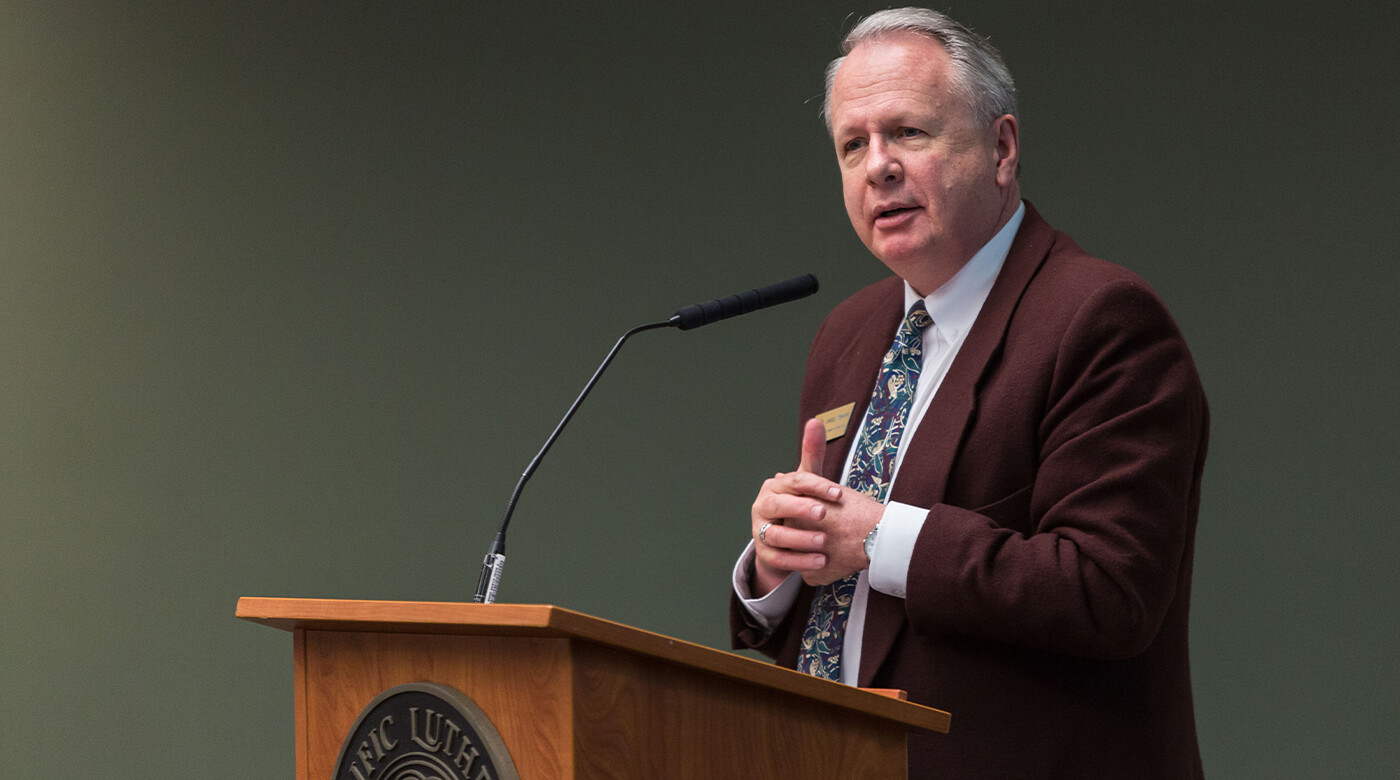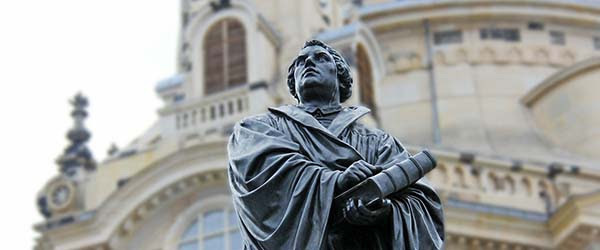Professor Samuel Torvend on Martin Luther’s teachings during the plague

By Lisa Patterson '98
Marketing and Communications Guest Writer
The trials, tribulations, and big questions that confounded 16th century Europeans as they faced the bubonic plague are eerily similar to what we are facing right now with COVID-19 and other social issues. German professor and priest, Martin Luther, had a lot of ideas of what people, and their political and spiritual leaders, should be doing in such trying times.
Samuel Torvend, Pacific Lutheran University professor of religion and university chair in Lutheran studies emeritus, recently hosted a series of Zoom presentations centering on Luther, and more specifically, how he navigated life and led others during the plague. The Zoom participants were from three local churches —two in Tacoma, and one in Olympia.
Torvend has published articles, book chapters and books on Luther and early Lutheran initiatives in art and architecture, education, healthcare, and social assistance. He spoke about one of Luther’s texts that pertains directly to pandemic and the responsibilities of political and religious leaders as well as citizens during a health crisis, and why our time is ripe for conversation and reflection on Luther’s guidance.
Were these Zoom presentations open to anyone who is interested?
Those were Zoom classes that I was asked to do for different Lutheran congregations on Luther’s view of political and religious leadership in a time of pandemic. (Torvend added that he’s open to doing more of these online events.)
Why is now a good time for these presentations about Luther?
As we were having these conversations, there were demonstrations at the state legislature and the governor’s mansion asking for the removal of all restrictions during the COVID outbreak. Luther speaks directly to those who make fun of or avoid restrictions in times of pandemic. Given the demonstrations against restrictions, I think the participants in our discussions were in full agreement with (Luther) on that, and they were grateful to know that there were and are religious leaders that looked very negatively on the avoidance of restrictions – restrictions that actually protect life. Luther and his colleagues were committed to an ethic of care, for the greater good.
And Luther insisted that prior to any natural disaster – famine or plague – political leaders are responsible for ensuring that more than adequate measures must be taken to care for the people who live within their region: by establishing and funding hospitals, adequate food stores, and support for the unemployed? Has that happened in the U.S.? Many would say, No.
Luther talked about those who were flippant about the plague and “too rash and reckless” during it. Can you briefly explain this part of his argument, and how it parallels current events?
So, we have the advantage of modern science. And what is so striking to me and horrific to me would be political leaders not paying any attention to medical expertise or making fun of medical science —the very thing that can actually save lives. Luther speaks directly to that. If your viewpoint is, “I’ll do what I want to do and not protect my family, friends, or neighbors,” that’s an incredibly selfish way of thinking about the world in which you live.
Luther wrote a lot about being a good neighbor. What did he think made a good neighbor then, and how can we be good neighbors now?
There are those who say, “it’s about my freedom to do anything I damn well please,” rather than the freedom to be responsible and care for other people, your family, friends and neighbors. I think the former is a skewed and erroneous understanding of freedom. And I say that because, well, not only Luther, but many other leaders historically, have said the function of freedom is to actually assist your neighbors who are most in need —that’s the sign of a mature human being, that you have an ethic of care that extends to people far beyond yourself or your family members.
How do Luther’s teachings sync with PLU’s core teachings?
To educate people for thoughtful learning, service, and care for others and the Earth – it is the very thing we’re talking about right now and it is at the heart of PLU’s mission. And so, I would hope that we would have faculty, staff, and students understanding what that mission means — in light of the crisis that we’re facing today —not only with the pandemic, but with questions of economic and racial injustice. And what we’re looking to is this: once there is a vaccine, who will have access to it? Only those who can pay or are covered with health insurance? Luther’s revolution in social assistance provided healthcare for poor and well-off citizens alike: everyone should have access to what makes life possible.




